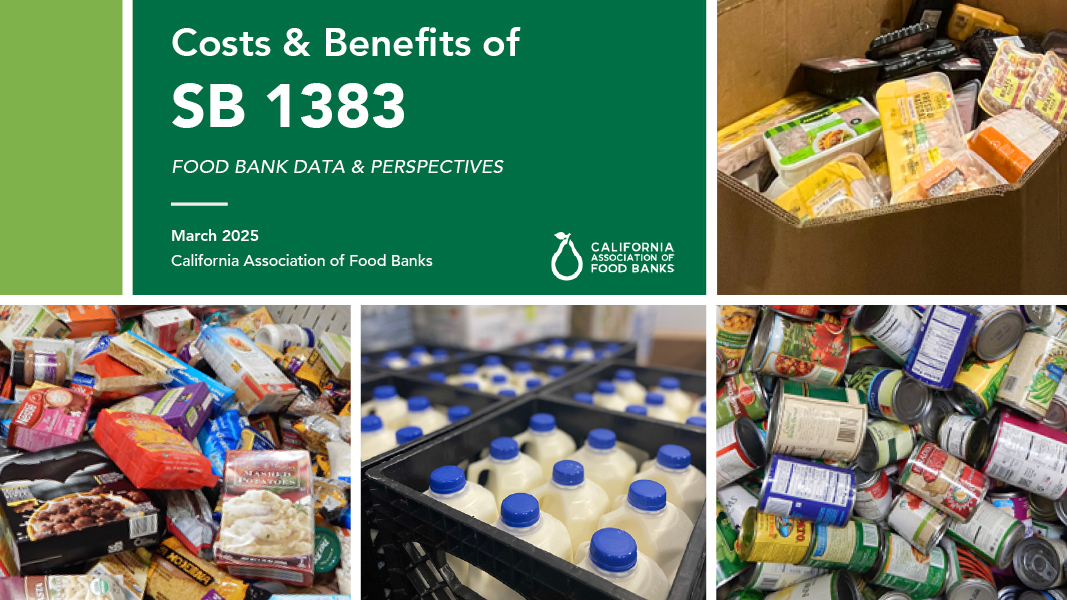Top: Graphic courtesy California Association Of Food Banks
SB 1383, California’s landmark organics recycling law, has a 20% carve-out requirement for edible food recovery. The law, which went into effect in January 2022, requires large food businesses such as supermarkets and wholesalers to donate their excess edible food to food recovery organizations (FROs) such as food banks. According to CalRecycle’s data, over 200,000 tons of unsold food were recovered by FROs in California to redistribute to community members in 2023, with the intention of helping communities address food security while also fighting climate change. However the California Association of Food Banks (CAFB) notes that many of the state’s food banks have been challenged by the extra logistical and administrative tasks required to comply with the law. To look further into the challenges, CAFB conducted a study among its member food banks to assess the impacts of SB 1383 compliance on their operations.
The final report, “Costs & Benefits of SB 1383,” released in March 2025, found that while most food banks are receiving more donations, and some are getting more nutritious items like meat, produce, and dairy, they are also getting more spoiled or unwanted donations which they must then dispose of themselves, incurring costs. Another challenge is having to spend more time establishing contracts to receive donations, educating donors and partner agencies, creating reports, and performing other administrative tasks. Half of food banks reported receiving some funding for food recovery, but not enough to cover their ongoing expenses. The report’s recommendations include:
- Identify sources of ongoing, sufficient funding for food banks and opportunities to lower their administrative burden;
- State agency development of training or capacity-building resources for generators and food recovery organizations (FROs); and
- Have local jurisdictions inform food generators of food recovery regulations, educate them on appropriate donations, and invite food bank staff to join them when visiting food generators to conduct education or enforcement activities.













